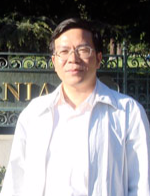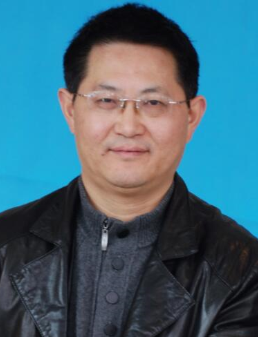
时 间: 2019.12.06~2019.12.08
地 点: 中国 成都 高新区(西区)西源大道2006号
主办单位: 国际期刊Cognitive Linguistics Studies、电子科技大学
与会人数: 待定
The 4thInternational Conference in Biolinguistics: Second Circular
为促进生物语言学研究领域的发展,搭建高层次国际学术交流与合作平台,推动生物语言学学科发展,由国际期刊Cognitive Linguistics Studies和电子科技大学主办,由电子科技大学外国语学院承办,第4届国际生物语言学研讨会将于2019年12月6日至12月8日在成都举行。
We are pleased to announce the 4th International Conference in Biolinguistics to take place in Chengdu, China from December 6 to December 8 in 2019. This conference is jointly organized by the international journal of Cognitive Linguistics Studies and the University of Electronic Science and Technology of China (UESTC), and hosted by the School of Foreign Languages at UESTC.
本届会议主题为“语言起源与演化的生物基础”,旨在为研究语言科学的学者提供一个多视角、多领域、跨学科的学术交流平台。会议议题富有交叉性,包括并不局限于:人类学、生物学、认知科学、遗传学、语言学、生理学和心理学。会议将邀请相关领域的著名学者做主旨发言,并安排会前工作坊、分会专题报告、墙报展示等多种形式的学术交流活动。
即日起,会议开始接受口头报告和墙报摘要投稿,欢迎各位专家学者和研究生踊跃投稿!
This conference is an initiative to disseminate research globally to theoretically minded linguists, linguistically minded biologists, cognitive scientists in general, and anyone else with an interest in the scientific study of language. The theme, Biological Foundation for Human Language Evolution, will focus on advancing our knowledge and understanding of biolinguistics. All the original and previously unpublished papers on such a topic are welcome. The event will comprise preconference workshop, plenary speech, parallel session and poster communication.
一、大会报告专家
Speakers

Name: Johannus Jan Bolhuis
Current affiliation: Utrecht University, Netherlands
Current research interest is concerned with the neural mechanisms of birdsong memory, and the neurocognitive parallels between birdsong, speech and language, along with a theoretical interest in the relationship between evolution, cognition, and the brain. His publications include over 200 journal papers and books (or chapters), one of which is the influencial bookBIRDSONG, SPEECH, AND LANGUAGE: EXPLORING THE EVOLUTION OF MIND AND BRAIN(2013, MIT). He is an editior or a referee of many peer-reviewed journals, e.g.BIOLINGUISTICS,NEUROSCIENCE & BIOBEHAVIORAL REVIEWS,ANIMAL BIOLOGY,and also an active researcher who has cooperated with N. Chomsky, R. Berwick, etc.

Name:Keith Maurice Kendrick
Current affiliation:University of Electronic Science and Technology of China, China
Using behavioral, brain imaging and pharmacogenetic approaches, he conducts research to investigate how the human brain interprets social and emotional information, the effects of prosocial peptides, and the neural mechanism and biological marker of neurotransmitter disorder in mental disease. He has held research positions in the University of Durham, Institute of Zoology, University of Cambridge and at the Babraham Institute in the UK prior to moving his current post in UESTC in 2011 as a National 1000 Talent Professor. He has published over 280 peer-reviewed papers, including many inNATURE,SCIENCEandPNASas well as in leading psychiatric journals. The total citation for his publications is now over 14,800, with 40 papers’ citations over 100 and 5 papers over 300 and the H index is 72. He is entitled as “Elsevier China Highly Cited Scholars” and has received numerous competitive research grants from both UK and China-based funding agencies.

Name:Geoffrey Miller
Current affiliation:University of New Mexico, US
His research interests are mainly in evolutionary psychology and human sexuality, ranging from mate choice strategy to human mental traits shaped by sexual and social selection, e.g. language, intelligence, creativity, music, and art. He has published more than 100 papers and books (or chapters), among which the bookTHE MATING MIND: HOW SEXUAL CHOICE SHAPE THE EVOLUTION OF HUMAN NATURE(2000) becomes a smash hit. The total citation of his research papers reaches 13,444 from Google Scholar as of October 2018, with 97 in i10-index and 54 in h-index. He has also been invited to give 200 talks across 16 countries and is a frequent guest on media programs.

Name:Diana Santos Fleischman
Current affiliation:University of Portsmouth, UK
Her research interests are in the area of evolutionary psychology, including the evolution of human morality, disgust, sexuality and the hormonal influences on behaviour, psychology and attitudes. She is also heavily involved in the effective altruism movement and sits on the board of Sentience Institute, a think tank dedicated to expanding humanity’s moral circle.

Name:Xu Wen
Current affiliation: Southwest University, China
His research focuses on cognitive linguistics, semantics, pragmatics, discourse analysis, syntax-semantics interface, biolinguistics, second and foreign language education, and translation studies. His publications includeTHE COGNITIVE FOUNDATION OF LANGUAGE;COGNITIVE LINGUISTICS: A READER;THE PRAGMATICS OF DISCOURSE UNDERSTANDING, andA COGNITIVE-PRAGMATIC STUDY IN IRONIC UTTERANCES. He is also the author of articles such as "Systematicity and complexity of IDEA metaphors in Chinese" (METAPHOR AND SYMBOL, 2016, 4), "Leader metaphors in Ekegusii language" (COGNITIVE LINGUISTIC STUDIES, 2017, 2), and "The motor features of action verbs: fMRI evidence using picture naming" (BRAIN AND LANGUAGE, 2018, 179). He is an editor of the journalCOGNITIVE LINGUISTIC STUDIES(John Benjamins), an editor of the journalASIAN-PACIFIC JOURNAL OF SECOND AND FOREIGN LANGUAGE EDUCATION(Springer), and an editorial board member of such journals asLANGUAGE SCIENCES,REVIEW OF COGNITIVE LINGUISTICS,INTERNATIONAL JOURNAL OF LANGUAGE AND CULTURE, etc. He has organized the International Forum on Cognitive Linguistics since 2011. Xu Wen is the president of the China Eco-translation and Cognitive Translation Society, and the vice president of the China Cognitive Linguistics Association, and the China Pragmatics Association.

Name:Wenkun Feng
Current affiliation: University of Electronic Science and Technology of China, China
His research focuses on theoretical interpretation of embodied cognition and language philosophy and comparative literature, particularly objectification theory of Marxism, signification of existence (phenomenology) and existential poetics. Nearly 100 papers, treatises and translations have been published. He is a member of the Guiding Committee for Teaching Foreign Languages of Sichuan Higher Education. Having been an academic visitor to Goshen College in US and a senior visiting scholar to Stanford University, he now is the vice president of the Applied Linguistics Association of Sichuan Province, and a member of the Comparative Literature Association of China. Since 2015 he has been elected the chairman of the Cognitive Linguistics Research Association of Sichuan Province. In 2011, he was awarded the second prize for his original and illuminating academic achievement in the field of humanities and social sciences by Sichuan Provincial People's Government.

Name: Jiaojian Wang
Current affiliation: University of Electronic Science and Technology of China, China
His primary research interest is the functional organization of parietal cortex in human and non-human primates and its evolution, development, aging, and clinical applications in brain disorders. He is also interested in animal model related psychiatry researches using neuroimaging approach, and the brain network changes after perturbation stimulation (such as TMS, DBS, and ECT). His research has been published inCELL,JOURNAL OF NEUROSCIENCE,CEREBRAL CORTEX,NEUROIMAGE, HUMAN BRAIN MAPPING,etc. Hosting several NSFC and horizontal cooperation projects, he is a guest associate editor inFRONTIERS IN NEUROSCIENCEand a review editor inFRONTIERS IN NEUROINFORMATICSandFRONTIERS IN HUMAN NEUROSCIENCE.He is also a regular reviewer for such journals asCEREBRAL CORTEX,NEUROIMAGE,HUMAN BRAIN MAPPING,IEEE TRANSACTIONS ON MEDICAL IMAGING(TMI), etc.
二、会议议题
Conference Strands
本届会议主题为“语言起源与演化的生物基础”,会议议题包括但不限于:
The Call for Papers is now open. The conference organizing committee invites submissions of presentation proposals on the following topics:
(1)生物语言学理论和方法研究
(2)生物语言学与语言习得研究
(3)生物语言学与认知语言学研究
(4)生物语言学与神经语言学研究
(5)生物语言学与进化语言学研究
(6)生物语言学与文化语言学研究
(7)生物语言学与动物交际研究
(8)生物语言学其他相关议题研究
Theories and methods of Biolinguistics
Biolinguistics and language acquisition and processing
Biolinguistics and cognitive linguistics
Biolinguistics and neurolinguistics
Biolinguistics and language evolution
Biolinguistics and cultural linguistics
Biolinguistics and animal communication
Other issues of Biolinguistics
三、摘要提交
Abstract Submission
6月15日前(早鸟价):800/人
8月30日前(标准价):1000/人
9月30日前(晚到价):1200/人
(在读学生半价)
投稿入选通知时间:2019年10月8日
中英文摘要写作要求:
1.不超过500字的完整摘要,用于匿名评审
2.不超过50字的简版摘要,用于《会议日程》
3.作者信息(另页):1)姓名、出生年月、性别、职称、研究方向;2)工作单位、通信地址、电子邮箱
4.均以Word格式排版,文件名为“姓名_内容_标题”。例如,前述1.条命名为“姓名_完整摘要_标题”,2.条命名为“姓名_简版摘要_标题”,3.条命名为“姓名_作者信息_标题”
5.以附件形式发送至:biolinguistics4@126.com,并注明“2019国际生物语言学研讨会投稿”字样。
6.会议工作语言为英语和汉语;发言语言与摘要语言一致
7.同一位作者不以第一作者身份多次投稿
All abstracts will be subject to a double-blind peer-review system in terms of originality, significance, relevance, clarity and technical soundness. The abstract for review should not exceed 500 words in English or Chinese (English is preferred). Another shortened abstract of 50 words for conference brochure and an independent author page should also be submitted tobiolinguistics4@126.com.
四、会议地点
Venue
电子科技大学清水河校区
Qingshuihe Campus, University of Electronic Science and Technology of China
No. 2006 Xiyuan Avenue, West Hi-Tech District, Chengdu, Sichuan, China
五、联系信息
Contact Email
张铁夫(biolinguistics4@126.com)
张勋(zhangxun@uestc.edu.cn)
赵立(zhaoli@uestc.edu.cn)
Tiefu ZHANG(biolinguistics4@126.com)
Xun ZHANG(zhangxun@uestc.edu.cn)
Li ZHAO(191809979@qq.com)
For more information about the 4thInternational Conference in Biolinguistics, please visit:http://wgy.uestc.edu.cn/biolinguistics/